Description
Successful Health Screening through Desensitisation for People with Learning Disabilities is a flexible training and resource pack. It aims to enable people with a learning disability to successfully access health screening and overcome fear and anxiety they may have about the process, utilising desensitisation.
The suggested techniques in the training pack respond directly to evidence of how the health needs of people with a learning disability are not currently being adequately met. It provides a practical evidence-based framework, tools and extensive resources for supporting individuals to have basic health screening through familiarisation and desensitisation. This is essential for ensuring quality of life and the best possible health outcomes, by monitoring and treating the common conditions people with learning disabilities suffer from.
The pack can be used in three different ways:
- To provide training workshops comprising one training day, or individual training sessions across a longer time period.
- As a self-study tool by staff members supporting people with learning disabilities, as part of their continuing professional development.
- Using the guidance and range of resources to work directly with specific individuals in order to access successful health screening. Staff can use these to plan and deliver a person-centred approach to desensitisation and health screening for each individual.
This training pack and the tools and resources which accompany it have been devised after extensive piloting work and in consultation with people with a learning disability, their families, carers and practitioners in South West Kent.
Audience
The materials in this pack can be used by learning disability teams who are supporting access to services, support staff, families and adults with learning disabilities. GPs (relevant sections can be incorporated in the Learning Disability Enhanced Services training they receive from community learning disability nurses), practice nurses and other healthcare professionals. The resources can be adapted for children and there is a specific section of additional activities for clinicians and student nurses.
Details
ISBN: 9781911028260
Publisher: Pavilion Publishing and Media
Publication: 19 June 2017
Content:
PART 1: UNDERSTANDING DESENSITISATION IN ACCESSING HEALTH SCREENING
- Session 1: Introduction
- Session 2: Health screening
- Session 3: Health issues for people with learning disabilities
- Session 4: Anxiety and phobias
- Session 5: Desensitisation
- Session 6: Recap (part 1)
PART 2: PRACTICAL TOOLS FOR DESENSITISATION IN HEALTH SCREENING
- Session 7: Supporting individuals through the health screening process
- Session 8: Screening
- Session 9: Barriers
- Session 10: Reasonable adjustments
- Session 11: Ethical issues and decision making
- Session 12: A person-centred approach to health screening
- Session 13: Health screening stories
- Session 14: Health screening and desensitisation profiles
- Session 15: Commitment
- Session 16: What can go wrong?
- Session 17: The environment
- Session 18: Preparing a desensitisation programme
- Session 19: Recap (part 2)
PART 3: ADDITIONAL ACTIVITIES FOR CLINICIANS AND STUDENT NURSES
- Session 20: Clinical issues in desensitisation
- Session 21: The importance of educating services
- Session 22: The evidence for desensitisation in health screening for people with learning disabilities
- Session 23: Working with children with learning disabilities
- PowerPoint slides
- Handouts
- Resources
- References
Authors
Sarah Walker is a senior community learning disability nurse working for Kent Community Health Foundation Trust in the Community Learning Disability Team. Sarah gained many years’ experience working with people with a learning disability as a support worker in community services. This led to her graduating from the University of Greenwich in 2007 as a learning disability nurse. Since qualifying, Sarah has gained many years of experience working within community, inpatient and forensic services. Her passion for enabling people with a learning disability to access generic health screening led to the pilot project within this pack.
Lisa Harrington is a specialist community matron currently working for Kent Community Health Foundation Trust. She graduated from the Elizabeth Raybould Centre for Health Care Studies in Dartford, Kent in 1990 and has since graduated in 2003 from Christchurch University with a diploma in applied psychology of learning disability. Lisa has worked for many years with people with a learning disability who have challenging needs, in both residential, supported living and community roles.

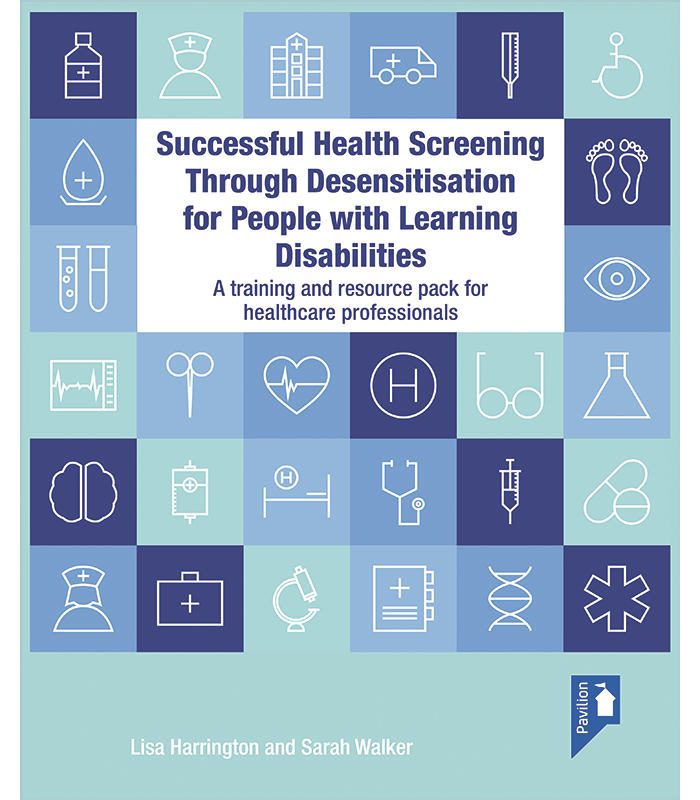
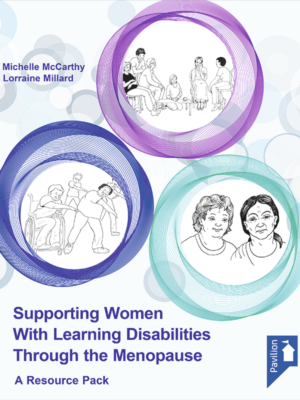
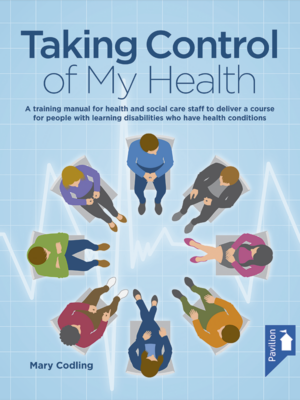
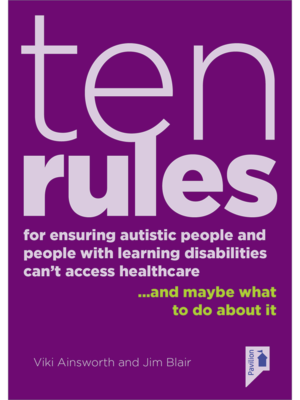
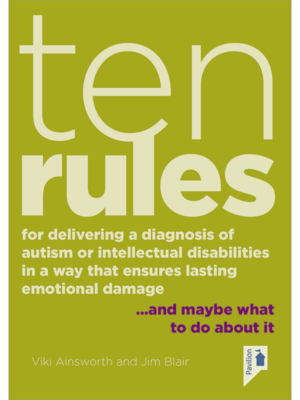
Reviews
There are no reviews yet.